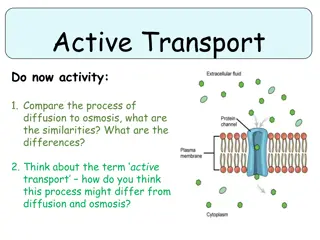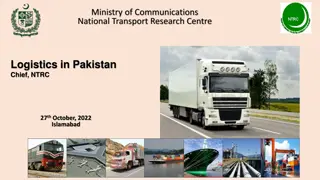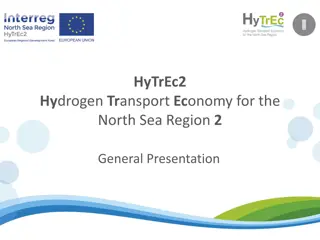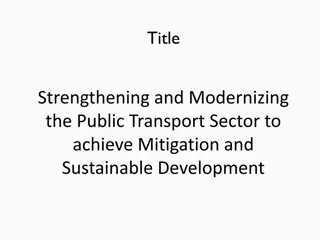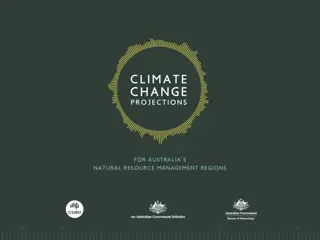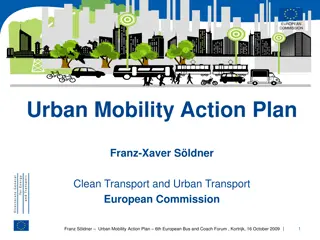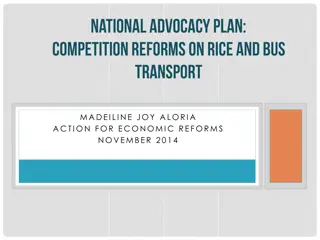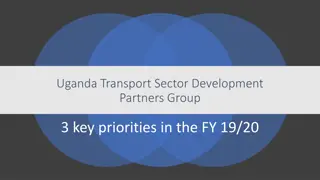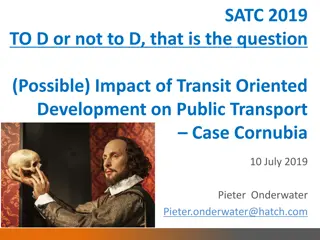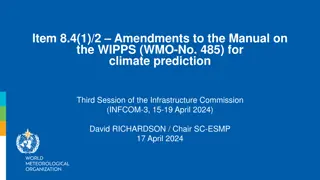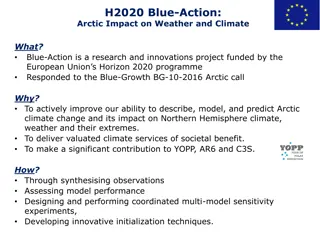Assessing Well-being Impact of Climate Action in Transport Sector
This paper examines how well-being is assessed in the transport sector, specifically focusing on climate policy in the land transport sector. It explores Ireland's Well-being Framework, suggests new performance indicators for monitoring well-being impact of expenditure related to climate action programs, and recommends updating indicators tracked in public service reports. The findings aim to enhance consideration of well-being impacts in evaluating climate policy interventions in transportation.
Download Presentation

Please find below an Image/Link to download the presentation.
The content on the website is provided AS IS for your information and personal use only. It may not be sold, licensed, or shared on other websites without obtaining consent from the author. Download presentation by click this link. If you encounter any issues during the download, it is possible that the publisher has removed the file from their server.
E N D
Presentation Transcript
Spending Review 2023 Adopting a Well-being Approach to Assessing Climate Action in The Transport Sector Kyle Moore and David Maher Department of Transport
Aims and Objectives This paper will review of how well-being is assessed within the transport sector. Specifically, it will focus on the area of climate policy and the land-transport sector, as policy in this area has been informed by the adoption of a well-being approach. The paper provides an overview of Ireland s Well-being Framework and examines how it currently tracks well-being within the transport sector. The paper examines how currently available public data sources could be used to provide additional key performance indicators to assist the Department in monitoring the well-being impact of expenditure, in particularinrelationtoprogrammeswhichwillhaveaclimateimpact. Theresultsofthispaperwillprovideinsightsintohowtoimprovetheassessmentofthewell-beingimpactofexpenditure Body Level One Body Level Two Body Level Three Body Level Four Body Level Five whichcouldbeusedaspartofthebudgetaryprocess,theRevisedAnnualEstimatesprocessandwithinthePublicService PerformanceReportstoprovidepolicymakersandthecitizenswithgreaterlevelsofdetailaboutinterventionswell-being impactovertime. 2 An Roinn Iompair | Department of Transport
Methodology Body Level One Body Level Two Body Level Three Body Level Four Body Level Five 3 An Roinn Iompair | Department of Transport
Conclusions Transport is a cross cutting enabler of well-being influencing a variety of dimensions of the well-being framework. This paper has identified new potential performance indicators in the areas of sustainable accessibility, transport affordability, road safety and local air pollution which will enhance the consideration and monitoring of well-being impacts when examining climate policy interventions in the transport sector. It is recommended that the findings of this paper are used to update indicators tracked and reported in the Revised Estimates for Public Service (REV) Public Service Performance Reports. Indicators can be used to monitor progress on key policies and measures such as Climate Action Plan, Sustainable Mobility Policy and the National Demand Management Strategy. The indicators identified in this paper will also support a review of the Well-being Framework scheduled to take place in 3-4 years. Body Level One Body Level Two Body Level Three Body Level Four Body Level Five 4 An Roinn Iompair | Department of Transport

 undefined
undefined











